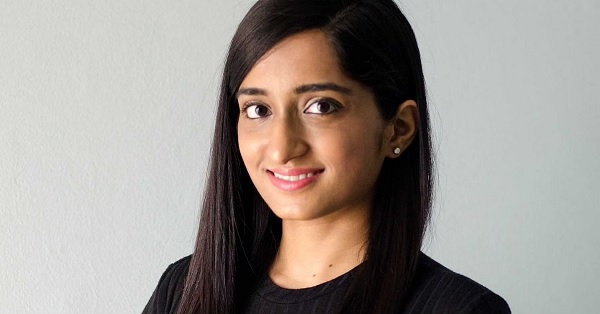DELHI / NRC :

LedBy, India’s first incubator for Indian Muslim Women helps them by providing leadership workshops, 360 degree advisory framework, and executive coaching.
Dr Ruha Shadab (30) is the founder of LedBy Foundation, India’s first and only leadership incubator focused on empowering Indian Muslim Women by providing leadership experiences to undergraduates and postgraduates. Launched in 2019, LedBy was incubated at Harvard University and was pre-seed funded by them as well.
Dr Ruha has been quite an achiever all her life – she pursued her medical degree, worked as a physician for a few years, then decided to join public health and worked at the Clinton Health Access Initiative (CHAI), worked with NITI Aayog and then made her way to Harvard with a full-tuition scholarship to pursue a master’s degree in public policy. At Harvard, Dr Ruha realised the need to do something for Indian Muslim women given the specific challenges that they faced, and also found the medium to address the problem.
From a religious majority to a religious minority
To understand why Dr Ruha felt the need to start an initiative for Indian Muslim women, it is imperative to understand her early influences.
While Dr Ruha is originally from India, she was born and raised in Saudi Arabia and she spent the first decade of her life there before moving to Delhi/NCR.
Narrating an incident that left a deep impact on her, which eventually led her to start this initiative, she says, “Twenty years ago, it was on Diwali that my family and I moved back to India. While driving from the airport to our home I saw every house on the way lit up and children on the streets bursting fire crackers. This suddenly took me back to the Diwali’s in Saudi and I realised how my friends there, the minority, never celebrated it in this way.” After a few years, she saw Eid in a similar light as Diwali.
She says, “In Saudi, as part of a monolithic society, one does not even think of what the minority is feeling. And then I moved to India where so many things just hit me so hard.” That is when she understood what being a Muslim woman, especially in a multicultural society like India, felt like.
It was not like there were not enough Muslim women, but they were hard to find in the mainstream.
“It was tiring, after a point of time to be the only Muslim woman in school, college, workplace. There was no one who shared a similar background as me whom I could look up to and aspire to be and that is what I wanted to change,” she says. During Dr Ruha’s stint as a clinical physician, she says, “At the hospital I worked at, I would see so many young Muslim girls with large families. Without saying it was right or wrong, what I saw was that there was an issue that needed to be addressed.”
Dr Ruha believes that there is a lot of talent in them [Indian Muslim women] but what they lack is 3 A’s: agency, access, and avenues. LedBy is looking to change that. If you have the privilege of knowing, you do not have the luxury of not doing,” says Dr Ruha.
LedBy works closely with high potential college-going Muslim women in India and provides them with three things – leadership workshops, 360* advisory framework, and executive coaching. “For all these three things we have very skilled women, across regions and religions, on-board to help the younger women realise and achieve their potential,” says Dr Ruha.
“We have been able to get coaches, mentors, and facilitators from across the globe. Being a virtual program helps breaks barriers,” she says. It is a summer program of four months in which 24 women are selected on merit. To be eligible to apply for this programme, you must identify yourself as an Indian Muslim woman, no more than two years away from completing a full-time undergraduate degree (that means, is in 3rd or 4th years of a 4-year program; 2nd or 3rd year of a 3-year program) or are in a full-time postgraduate program of one or two years duration, and physically reside in India.
For the 24 women who were part of the first cohort – what stood out were the connections that they made and the validation that their ideas and dreams received from others at the programme. While for Ammara Gul Qaisar, a student at Lady Shri Ram College, the programme “represents the power of human connections”, for Sahreen Shamim the programme allowed her a chance to delve into her dreams and find ways of realising them.
With an office based in Noida, Dr Ruha says that everything that they do is virtual and in a sense COVID-19 only helped in pushing it towards being online.
source: http://www.maeeshat.in / Maaeshat.in / Home> Entrepeneurship / January 11th, 2021








